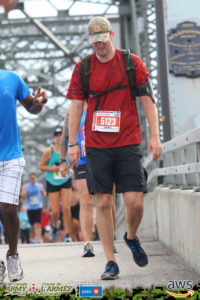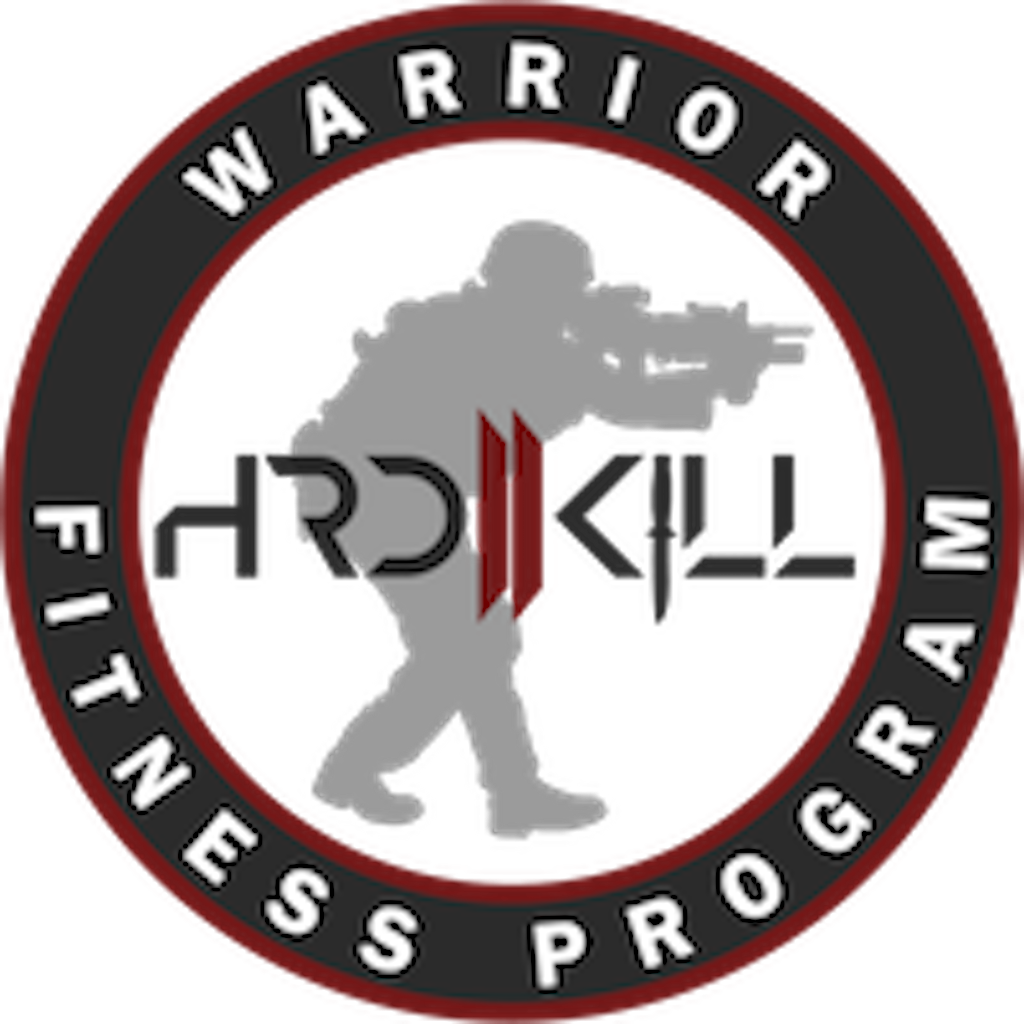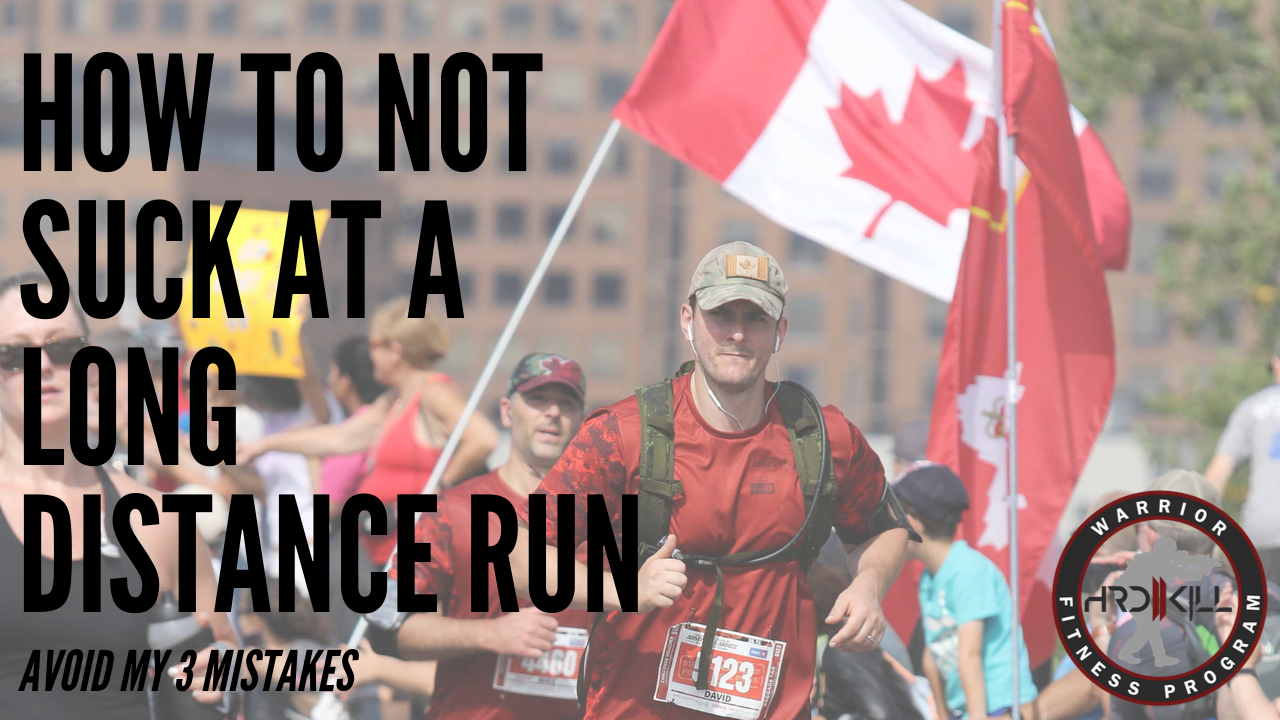The Army Run was held September 29th, 2019 and I was proud to be taking on the Commander’s Challenge of 26.1 km; the longest run I would have ever completed and I’ll be going over the 3 main reasons that I feel led to my piss poor performance and how to not suck at a long distance run.
Reason 1 – Train The Way You Fight

Anyone that’s had any experience with modern tactical training, from the military to policing, has probably heard this expression. It’s an important fundamental in getting us ready to head into a war zone since incorporating “training scars” such as picking up your brass after shooting on a range can and has lead to soldiers doing this in actual combat which can result in mortal consequences.
What were my “training scars”? The most important of them all was failure to incorporate a long break between 5km and 21.1km runs.
The Commander’s Challenge was set up as a 5km run followed by the half marathon distance. However, what I failed to take into consideration was the prolonged wait between the two runs. I spent close to 45 mins sitting, laying down and not doing much until the half marathon began. What this led to, I believe, is a down-regulation of my central nervous system since all my previous 5km runs, in training, simply ended and I would then consume copious amounts of water, salt and then rest and foam roll.
Only 5km into the half marathon, I had already started to feel tight and my legs were becoming heavier and heavier. I knew something was off. All my previous confirmation runs had been between 15km and 25km – non stop.
Reason 2 – Use The Right Fuel

Here’s something that I’m always guilty of, you think I’d learn my lesson. I screw up my nutrition on every major race I’ve ever done. Here was my strategy going into this one.
Run fasted.
It was simple, I knew from previous runs, adventure races and triathlons that having a massive meal in the morning just made me sluggish and left me having to rush to a shitter half way through my race. Therefore, during my training runs, I would head out with having had very little in terms of food, all day. Usually, at around 0630, I would have a light breakfast (water, coffee, 1/2cup of oatmeal and a few eggs) and then head out for my runs around noon.
I usually felt awesome, not just because I had a little THC in my system (check my video post on this) but overall, my guts didn’t bother me, nor did I feel hungry or at a loss for energy. However on race day, the timings were different with the 5km starting at 0800 and the 21.1km starting at 9:30 and I decided that I wouldn’t consume anything except water and coffee, pre race.
My 5km felt fine, not my best time but I was pacing myself for the 21.1km. When I hit the 21.1km, I started to feel lethargic and heavy and at around 5km into the run, knew something wasn’t quite right. I drank more water which I had in my camel back and I always added a tsp of Himalayan salt to it. This didn’t have any effect. Eventually, at kilometer ten, I caved and had a few race gummies they were handing out. This lead to me hitting the shitters at kilometer 12. The wheels had officially fallen off.
Reason 3 – Listen To Your Body
I was a complete ding dong on this one. I was having adductor issues weeks before the race and my hamstrings were starting to flare up. But me, being the “Nimble Warrior” figured I had this covered – I did not.
My ego got the better of me and I didn’t seek out treatment. I did seek out my normal treatment regimen for my back but didn’t focus any effort on my white hot, glaring issues that would ultimately slow me down to a halt on race day.
I have to admit that I am getting older. I don’t recover nearly as fast as I used to and a MASSIVE factor for this lack of recovery was lack of sleep during the last month of training.
Why you ask?
Well, my daughter was born in August and, like all new parents know, sleep becomes a commodity that we’d spend our life savings on to acquire. After my long runs of 15km +, I realized that it would take close to 5 days to feel “recovered” again but even at that, my legs didn’t have the pop they should’ve and my joints were hurting more than usual.
So yes, I’m putting the blame, squarely on my beautiful daughter for my shitty performance.
How To Do Better Next Time
All these reasons considered, I know I have the legs and the endurance to complete a 26.1km race without resorting to stopping and walking 5km of it. With that said, here’s what I would do differently next time:
- I would make a firm decision on my nutrition months in advance. To run fasted for short durations is not an issue but increasing the distances require you to be better “fat adapted”. In this case, I would have to follow a strict ketogenic protocol to do so. This has to do with being able to switch your primary fuel source from carbohydrates, to ketones derived from your fat stores.
- Running at a set time to reflect the race time is not always feasible with life getting in the way but making sure that I run more consistently and with a better training arc would be the logical solution. I think I’ve reached the limit of my ability to coach myself here and will seek out a pro for next year.
- Recovery is crucial. This has to include a much more strict nutrition journal to make sure I’m re adding the massive amounts of calories I’ve burned on my long runs. Additionally, sleep density needs to be much better by cooling down my room, wearing a sleep mask and ensuring I get into deep sleep every time I hit the sack. Lastly, getting to the massage therapist to address any hot spots as soon as they arise is going to be a must.
There you have it. I hope this is insightful and that you’re able to build a better running plan for yourself based on my mistakes. Not incorporating lessons learned is the best way to repeat your dumbass mistakes over and over again.
If you’re considering getting back on the road, putting in the miles for a run you’re keen on tackling, don’t be shy to hit me with an email and I’d love to hear about your plan.
As always,
Train Hard, Fight Easy.

Dave is a retired infantry officer and Afghanistan war veteran. He’s the creator of the HRD2KILL training program that was built on the principles that got him from not being able to get out of bed to competing in the Crossfit Open, Spartan Races and the Montreal Gaelic Athletics Association. You can find more mobility based exercises in his new book, “The Nimble Warrior”, now available on Apple Books and Amazon or tune into his new HRD2KILL Podcast

